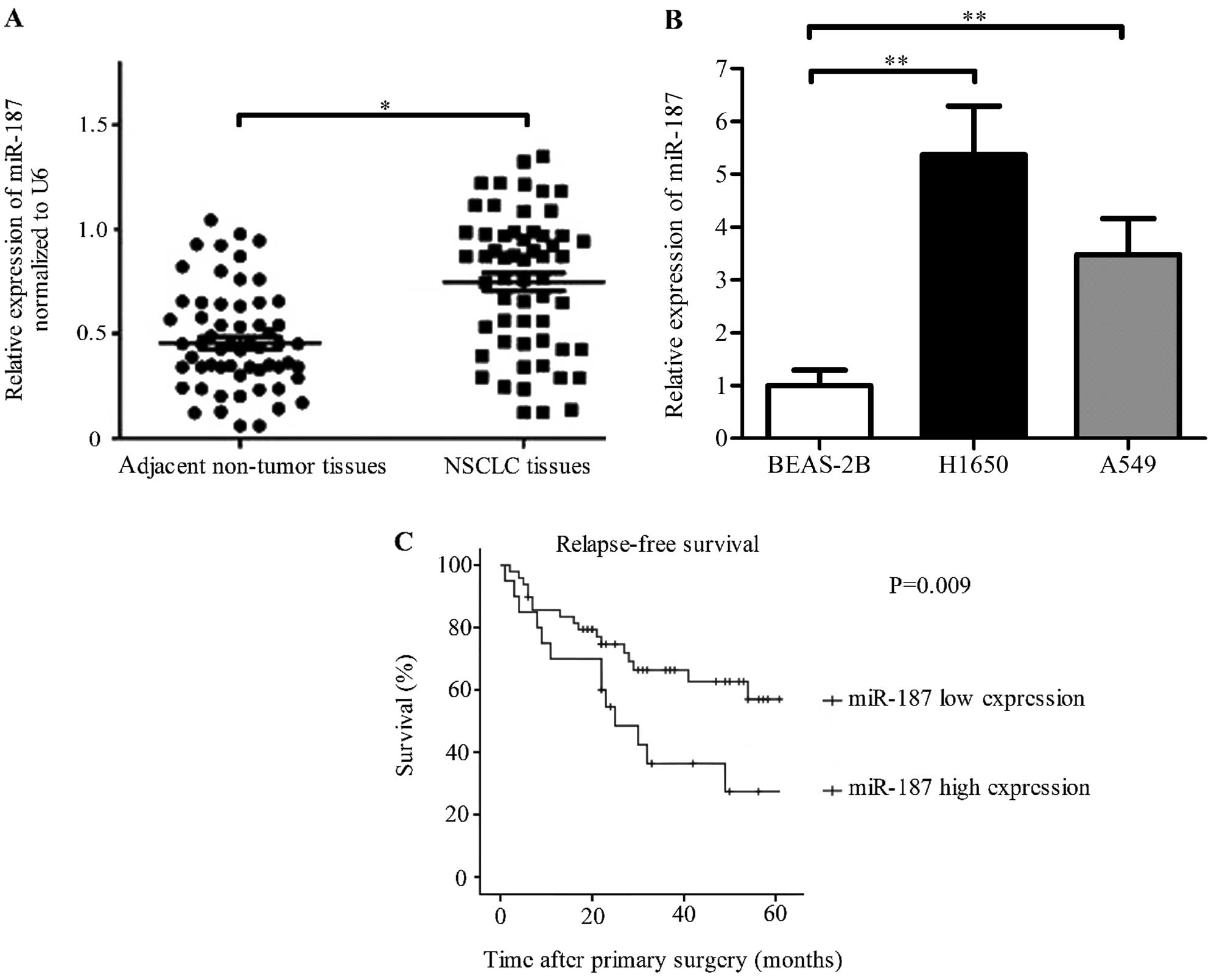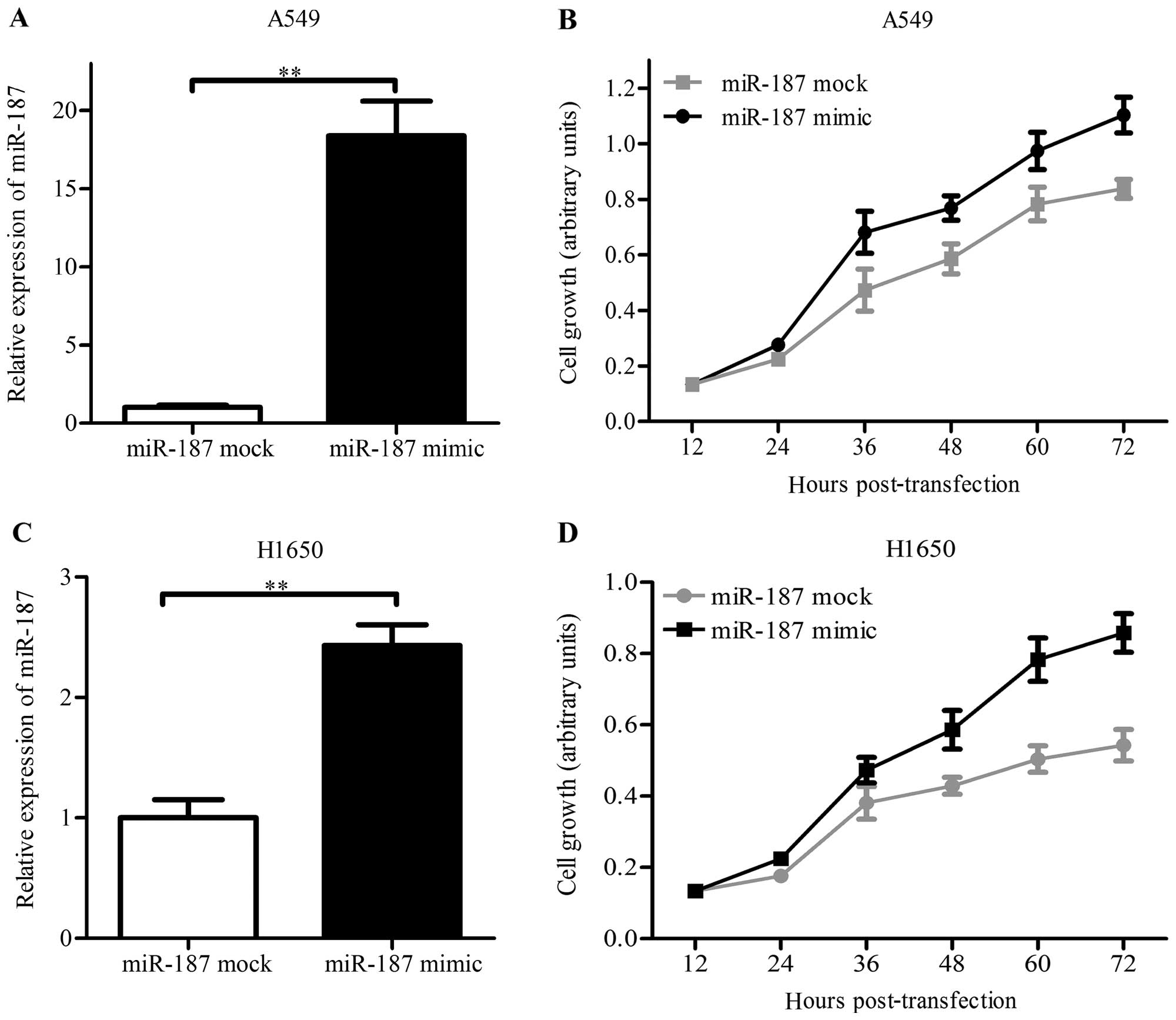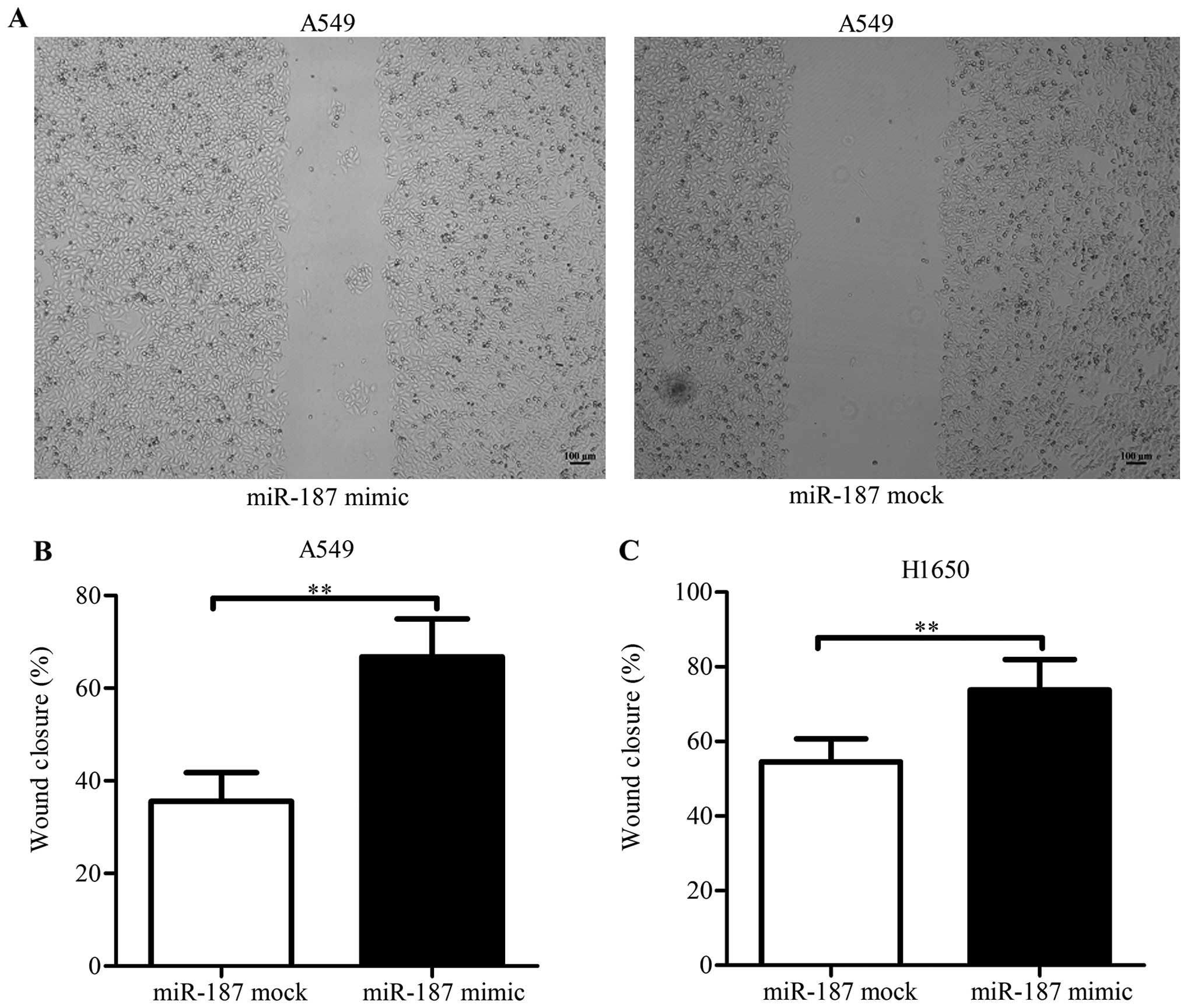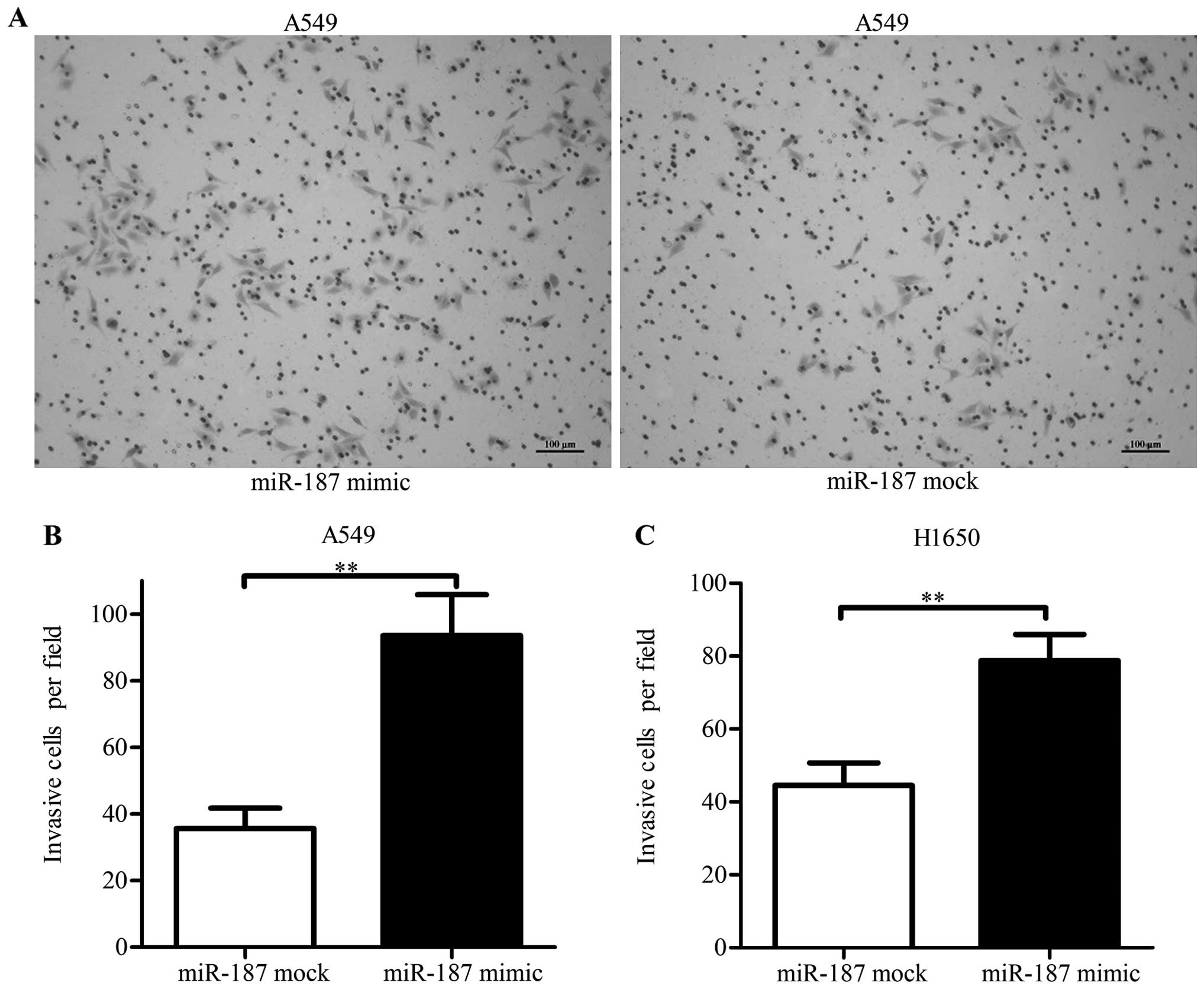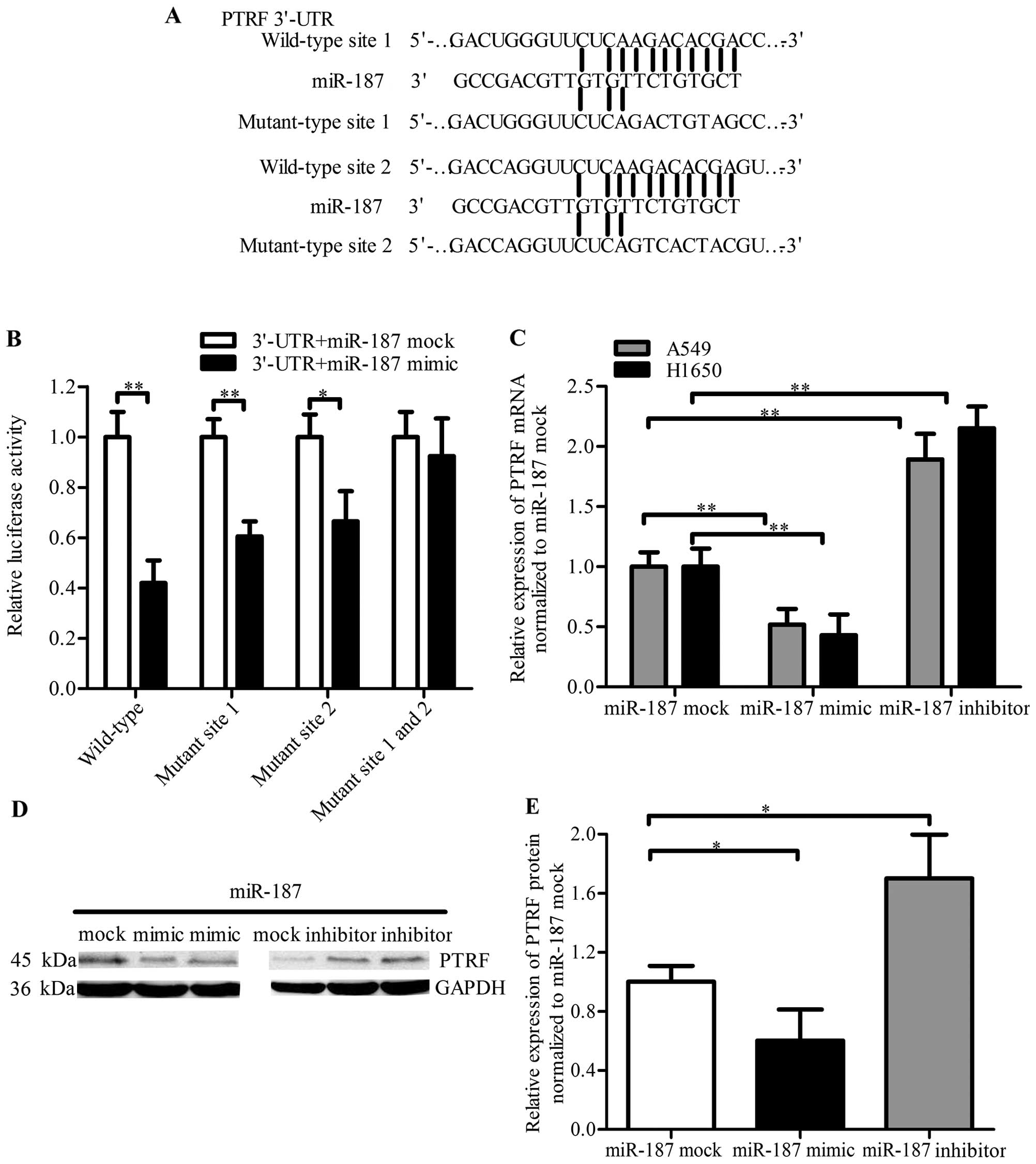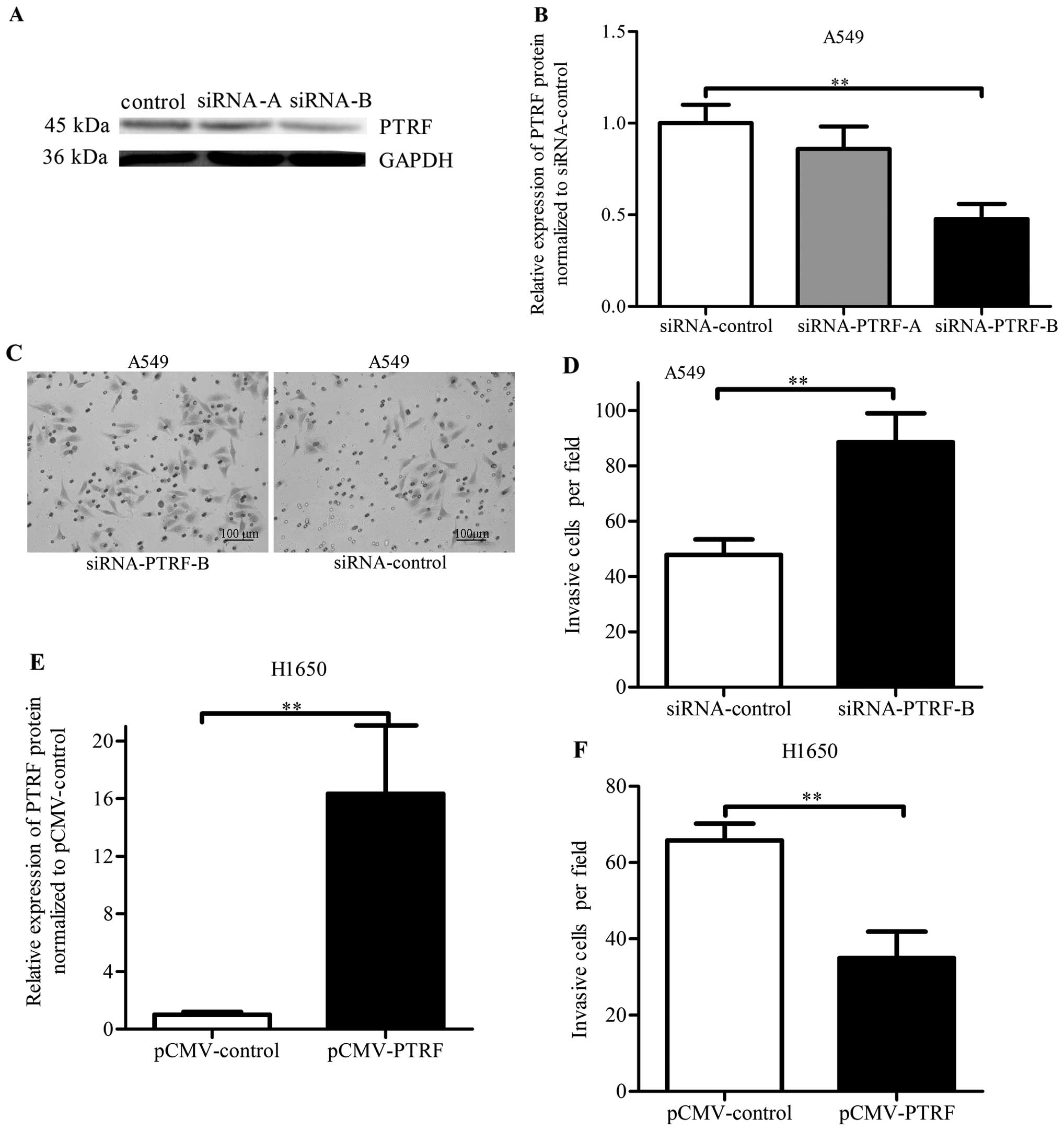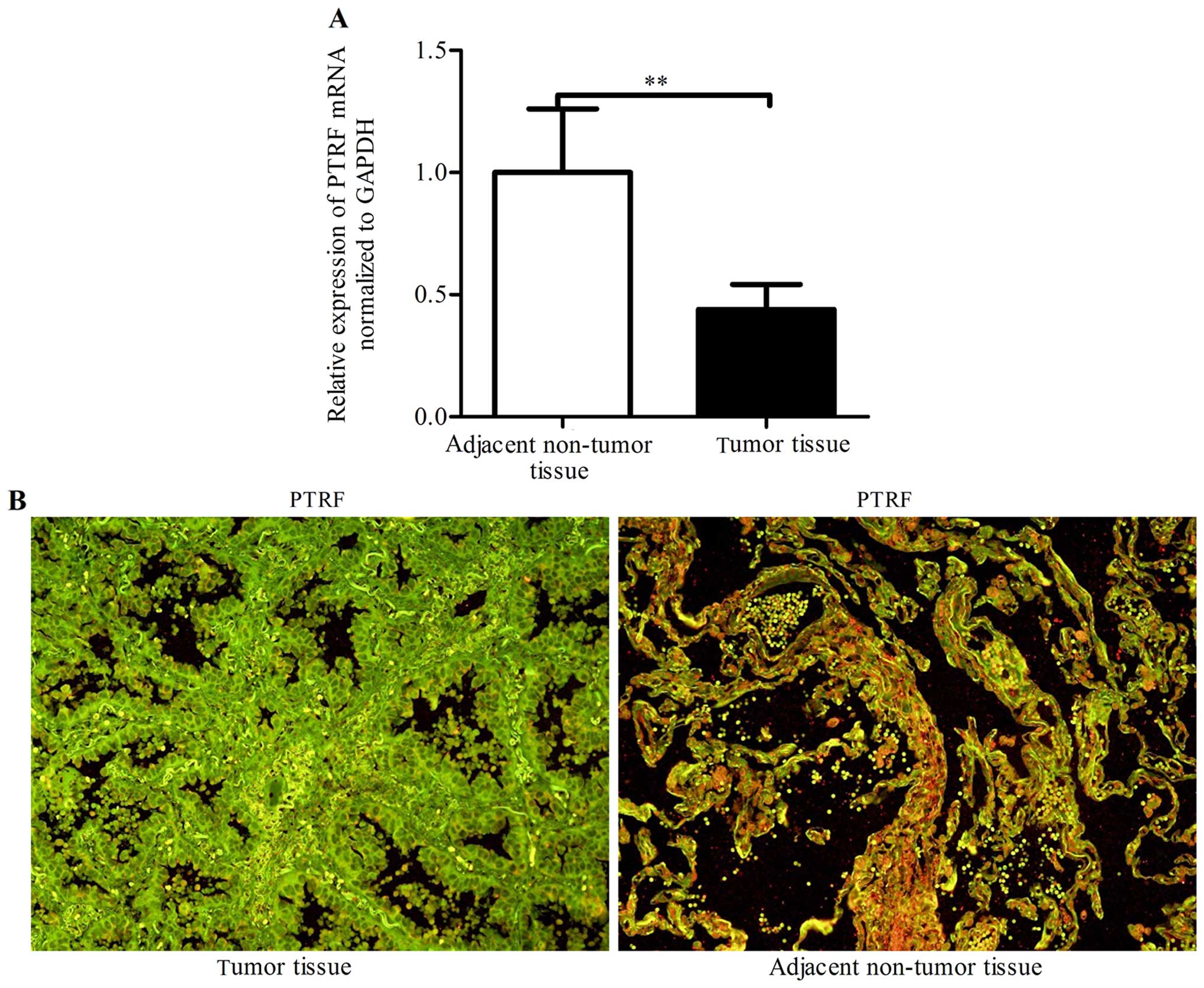|
1
|
Begum S, Hayashi M, Ogawa T, Jabboure FJ,
Brait M, Izumchenko E, Tabak S, Ahrendt SA, Westra WH, Koch W, et
al: An integrated genome-wide approach to discover deregulated
microRNAs in non-small cell lung cancer: Clinical significance of
miR-23b-3p deregulation. Sci Rep. 5:132362015. View Article : Google Scholar : PubMed/NCBI
|
|
2
|
Zhang ZY, Fu SL, Xu SQ, Zhou X, Liu XS, Xu
YJ, Zhao JP and Wei S: By downregulating Ku80, hsa-miR-526b
suppresses non-small cell lung cancer. Oncotarget. 6:1462–1477.
2015. View Article : Google Scholar : PubMed/NCBI
|
|
3
|
Chen C, Zhao Z, Liu Y and Mu D:
MicroRNA-99a is downregulated and promotes proliferation, migration
and invasion in non-small cell lung cancer A549 and H1299 cells.
Oncol Lett. 9:1128–1134. 2015.PubMed/NCBI
|
|
4
|
Zhang B, Liu T, Wu T, Wang Z, Rao Z and
Gao J: microRNA-137 functions as a tumor suppressor in human
non-small cell lung cancer by targeting SLC22A18. Int J Biol
Macromol. 74:111–118. 2015. View Article : Google Scholar
|
|
5
|
Ai C, Jiang R, Fu L and Chen Y:
MicroRNA-495 mimics delivery inhibits lung tumor progression.
Tumour Biol. 36:729–735. 2015. View Article : Google Scholar
|
|
6
|
Shi WY, Liu KD, Xu SG, Zhang JT, Yu LL, Xu
KQ and Zhang TF: Gene expression analysis of lung cancer. Eur Rev
Med Pharmacol Sci. 18:217–228. 2014.PubMed/NCBI
|
|
7
|
Ohdaira H, Sekiguchi M, Miyata K and
Yoshida K: MicroRNA-494 suppresses cell proliferation and induces
senescence in A549 lung cancer cells. Cell Prolif. 45:32–38. 2012.
View Article : Google Scholar
|
|
8
|
Liang J, Zhang Y, Jiang G, Liu Z, Xiang W,
Chen X, Chen Z and Zhao J: MiR-138 induces renal carcinoma cell
senescence by targeting EZH2 and is downregulated in human clear
cell renal cell carcinoma. Oncol Res. 21:83–91. 2013. View Article : Google Scholar
|
|
9
|
Li Z, Lei H, Luo M, Wang Y, Dong L, Ma Y,
Liu C, Song W, Wang F, Zhang J, et al: DNA methylation
downregulated mir-10b acts as a tumor suppressor in gastric cancer.
Gastric Cancer. 18:43–54. 2015. View Article : Google Scholar
|
|
10
|
Zhang J, Xu L, Yang Z, Lu H, Hu D, Li W,
Zhang Z, Liu B and Ma S: MicroRNA-10b indicates a poor prognosis of
non-small cell lung cancer and targets E-cadherin. Clin Transl
Oncol. 17:209–214. 2015. View Article : Google Scholar
|
|
11
|
Zhao G, Liu L, Zhao T, Jin S, Jiang S, Cao
S, Han J, Xin Y, Dong Q, Liu X, et al: Upregulation of miR-24
promotes cell proliferation by targeting NAIF1 in non-small cell
lung cancer. Tumour Biol. 36:3693–3701. 2015. View Article : Google Scholar : PubMed/NCBI
|
|
12
|
Xie X, Liu H, Wang M, Ding F, Xiao H, Hu
F, Hu R and Mei J: miR-342–3p targets RAP2B to suppress
proliferation and invasion of non-small cell lung cancer cells.
Tumour Biol. 36:5031–5038. 2015. View Article : Google Scholar : PubMed/NCBI
|
|
13
|
Zhang W, Liu K, Liu S, Ji B, Wang Y and
Liu Y: MicroRNA-133a functions as a tumor suppressor by targeting
IGF-1R in hepatocellular carcinoma. Tumour Biol. 36:9779–9788.
2015. View Article : Google Scholar : PubMed/NCBI
|
|
14
|
Mulrane L, Madden SF, Brennan DJ, Gremel
G, McGee SF, McNally S, Martin F, Crown JP, Jirström K, Higgins DG,
et al: miR-187 is an independent prognostic factor in breast cancer
and confers increased invasive potential in vitro. Clin Cancer Res.
18:6702–6713. 2012. View Article : Google Scholar : PubMed/NCBI
|
|
15
|
Chao A, Lin CY, Lee YS, Tsai CL, Wei PC,
Hsueh S, Wu TI, Tsai CN, Wang CJ, Chao AS, et al: Regulation of
ovarian cancer progression by microRNA-187 through targeting
Disabled homolog-2. Oncogene. 31:764–775. 2012. View Article : Google Scholar
|
|
16
|
Mirzadeh Azad F, Naeli P, Malakootian M,
Baradaran A, Tavallaei M, Ghanei M and Mowla SJ: Two lung
development-related microRNAs, miR-134 and miR-187, are
differentially expressed in lung tumors. Gene. 577:221–226. 2016.
View Article : Google Scholar
|
|
17
|
Yan ZX, Wu LL, Xue K, Zhang QL, Guo Y,
Romero M, Leboeuf C, Janin A, Chen SJ, Wang L, et al: MicroRNA187
overexpression is related to tumor progression and determines
sensitivity to bortezomib in peripheral T-cell lymphoma. Leukemia.
28:880–887. 2014. View Article : Google Scholar
|
|
18
|
Zhao J, Lei T, Xu C, Li H, Ma W, Yang Y,
Fan S and Liu Y: MicroRNA-187, downregulated in clear cell renal
cell carcinoma and associated with lower survival, inhibits cell
growth and migration though targeting B7-H3. Biochem Biophys Res
Commun. 438:439–444. 2013. View Article : Google Scholar : PubMed/NCBI
|
|
19
|
Jansa P and Grummt I: Mechanism of
transcription termination: PTRF interacts with the largest subunit
of RNA polymerase I and dissociates paused transcription complexes
from yeast and mouse. Mol Gen Genet. 262:508–514. 1999. View Article : Google Scholar : PubMed/NCBI
|
|
20
|
Hill MM, Bastiani M, Luetterforst R,
Kirkham M, Kirkham A, Nixon SJ, Walser P, Abankwa D, Oorschot VM,
Martin S, et al: PTRF-Cavin, a conserved cytoplasmic protein
required for caveola formation and function. Cell. 132:113–124.
2008. View Article : Google Scholar : PubMed/NCBI
|
|
21
|
Cohen AW, Hnasko R, Schubert W and Lisanti
MP: Role of caveolae and caveolins in health and disease. Physiol
Rev. 84:1341–1379. 2004. View Article : Google Scholar : PubMed/NCBI
|
|
22
|
Gould ML, Williams G and Nicholson HD:
Changes in caveolae, caveolin, and polymerase 1 and transcript
release factor (PTRF) expression in prostate cancer progression.
Prostate. 70:1609–1621. 2010. View Article : Google Scholar : PubMed/NCBI
|
|
23
|
Aung CS, Hill MM, Bastiani M, Parton RG
and Parat MO: PTRF-cavin-1 expression decreases the migration of
PC3 prostate cancer cells: Role of matrix metalloprotease 9. Eur J
Cell Biol. 90:136–142. 2011. View Article : Google Scholar
|
|
24
|
Shen J, Behrens C, Wistuba II, Feng L, Lee
JJ, Hong WK and Lotan R: Identification and validation of
differences in protein levels in normal, premalignant, and
malignant lung cells and tissues using high-throughput Western
Array and immunohistochemistry. Cancer Res. 66:11194–11206. 2006.
View Article : Google Scholar : PubMed/NCBI
|
|
25
|
Bai L, Deng X, Li Q, Wang M, An W, Deli A,
Gao Z, Xie Y, Dai Y and Cong YS: Down-regulation of the cavin
family proteins in breast cancer. J Cell Biochem. 113:322–328.
2012. View Article : Google Scholar
|
|
26
|
Moon H, Lee CS, Inder KL, Sharma S, Choi
E, Black DM, Lê Cao KA, Winterford C, Coward JI, Ling MT, et al:
Australian Prostate Cancer BioResource: PTRF/cavin-1 neutralizes
non-caveolar caveolin-1 microdomains in prostate cancer. Oncogene.
33:3561–3570. 2014. View Article : Google Scholar
|
|
27
|
Guha U, Chaerkady R, Marimuthu A,
Patterson AS, Kashyap MK, Harsha HC, Sato M, Bader JS, Lash AE,
Minna JD, et al: Comparisons of tyrosine phosphorylated proteins in
cells expressing lung cancer-specific alleles of EGFR and KRAS.
Proc Natl Acad Sci USA. 105:14112–14117. 2008. View Article : Google Scholar : PubMed/NCBI
|
|
28
|
Rossato M, Curtale G, Tamassia N,
Castellucci M, Mori L, Gasperini S, Mariotti B, De Luca M, Mirolo
M, Cassatella MA, et al: IL-10-induced microRNA-187 negatively
regulates TNF-α, IL-6, and IL-12p40 production in TLR4-stimulated
monocytes. Proc Natl Acad Sci USA. 109:E3101–E3110. 2012.
View Article : Google Scholar
|
|
29
|
Fu Y, Hoang A, Escher G, Parton RG,
Krozowski Z and Sviridov D: Expression of caveolin-1 enhances
cholesterol efflux in hepatic cells. J Biol Chem. 279:14140–14146.
2004. View Article : Google Scholar : PubMed/NCBI
|
|
30
|
Lee BH, Taylor MG, Robinet P, Smith JD,
Schweitzer J, Sehayek E, Falzarano SM, Magi-Galluzzi C, Klein EA
and Ting AH: Dysregulation of cholesterol homeostasis in human
prostate cancer through loss of ABCA1. Cancer Res. 73:1211–1218.
2013. View Article : Google Scholar :
|
|
31
|
Nassar ZD, Hill MM, Parton RG and Parat
MO: Caveola-forming proteins caveolin-1 and PTRF in prostate
cancer. Nat Rev Urol. 10:529–536. 2013.PubMed/NCBI
|















